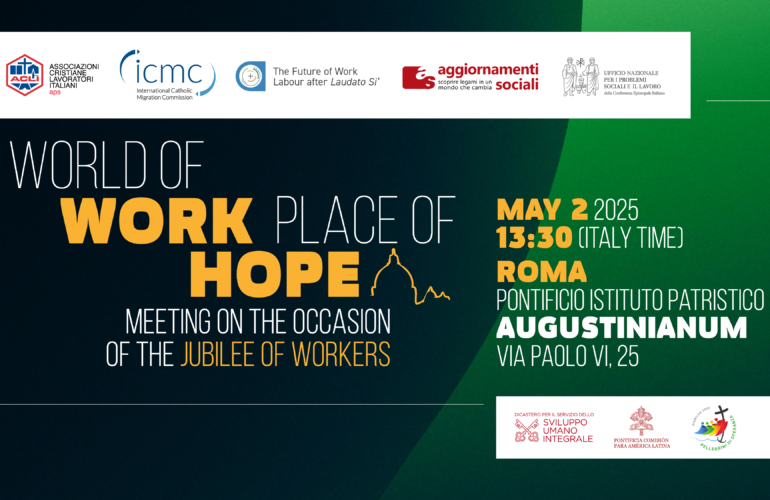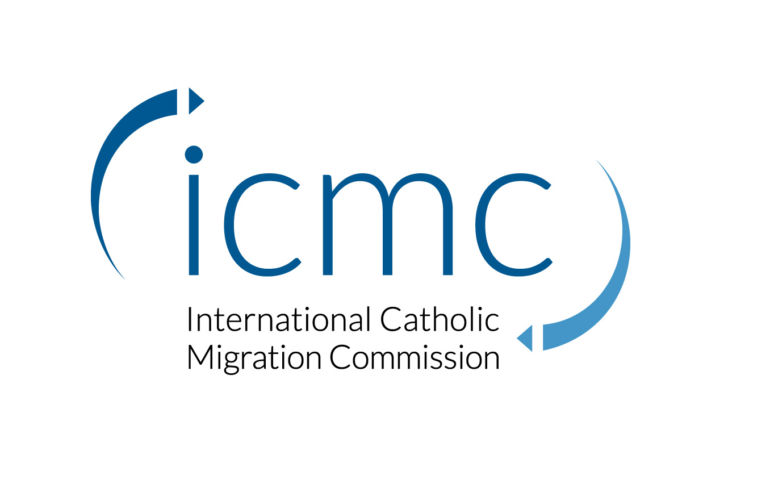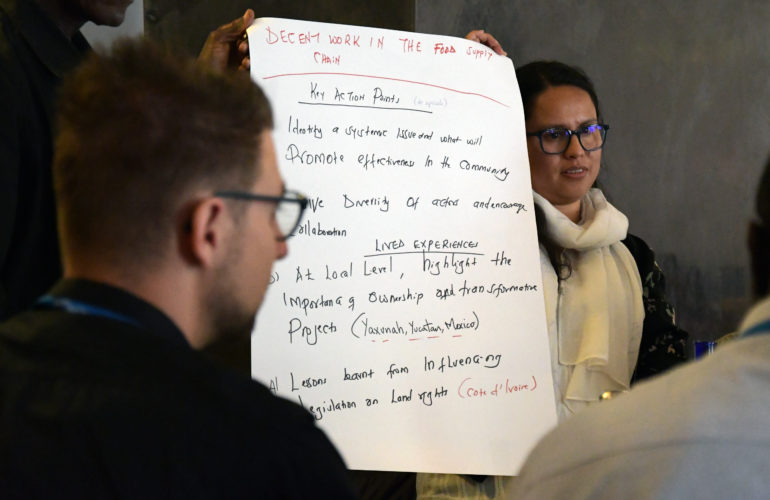ICMC Joins European Discussions on Shaping the Future of Work in the Global Care Sector
On 30 October 2024, UNI Care Europa organized a Care Dialogue at the Brussels offices of the European Economic and Social Committee (EESC)1. The event brought together faith-based organizations, trade unions, international organizations, and civil society representatives to discuss advancing workers’ dignity and fostering social justice.
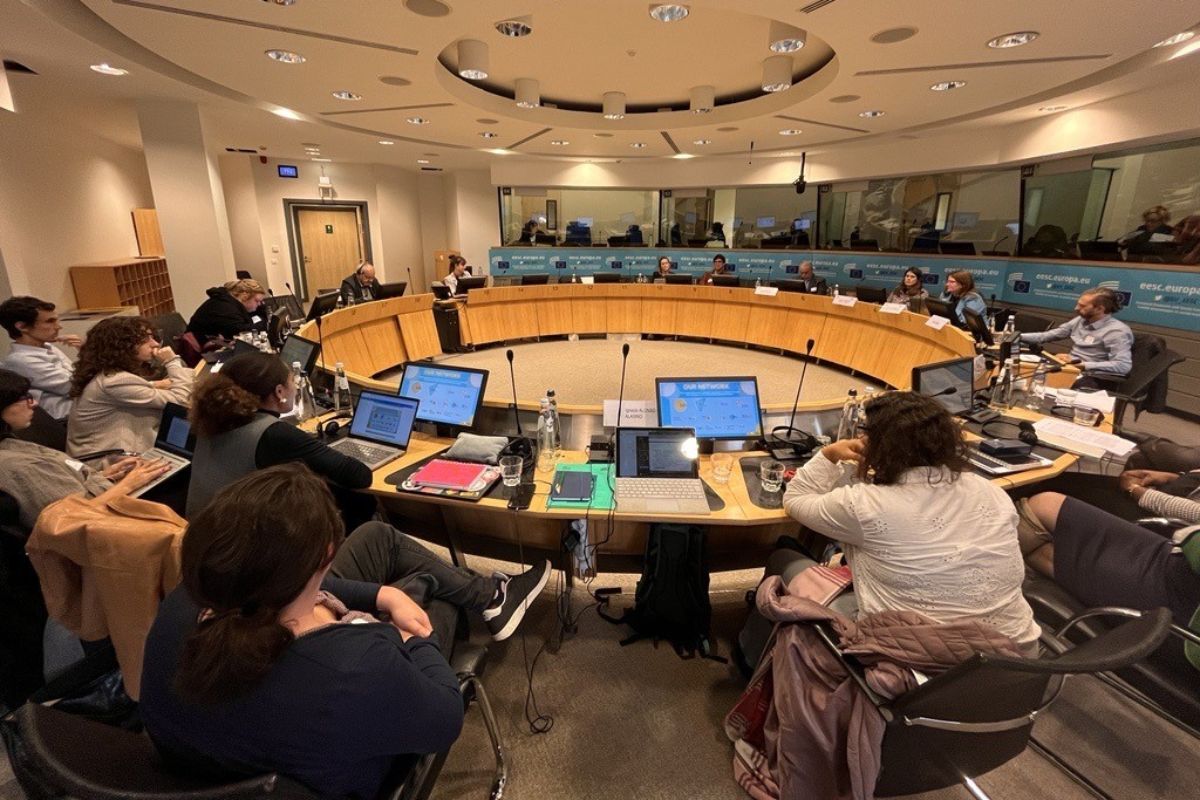
The Care Dialogue featured discussions on the shared values of Catholic social teaching and trade union advocacy, highlighting how both support fair wages, improved working conditions, and collective bargaining rights. Alongside ICMC, the event featured speakers from organizations including the International Labour Organization (ILO), Caritas Europa, the Commission of the Bishops’ Conferences of the European Union (COMECE), the Italian Federation of Commercial and Related Services and Tourism (FISASCAT-CISL), UNI Global Union, the Faire Mobilität Project (DGB), and Eurodiaconia. Together, they discussed critical issues affecting workers and their rights around the world, including the impact of demographic shifts and labor shortages, the rise of new technologies such as artificial intelligence, as well as the importance of supporting migrant and refugee workers.
“Care is Work, Work is Care”
ICMC Secretary General Mr. Davide Bernocchi underscored the Church’s role in promoting fairness in the workplace during his intervention. Highlighting principles from Catholic social teaching, he emphasized the need to secure “fair wages, safe working conditions, and the right to organize”, thereby tackling inequality and fostering a just labor market that upholds workers’ dignity.
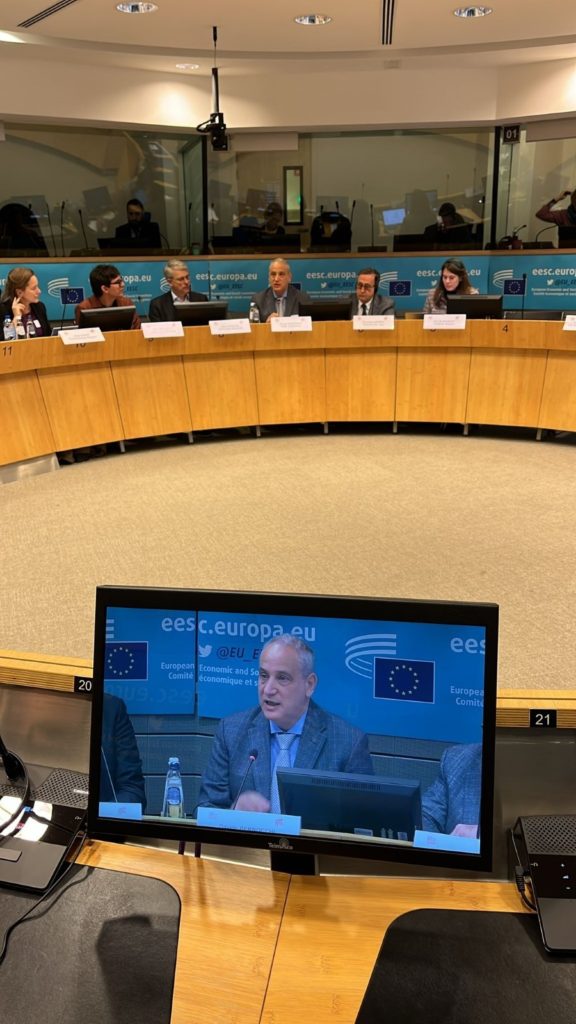
Mr. Bernocchi introduced The Future of Work – Labour after Laudato Si’ (FOWLS) Project, a network of Catholic-inspired organizations around the world coordinated by ICMC. Rooted in Pope Francis’ encyclical Laudato Si’, the FOWLS Project integrates care, environmental stewardship, and social justice into workplace practices, and challenges employers and workers’ organizations to answer Pope Francis’ call for a profound care for creation and consideration of the human and ecological dimensions of their operations. .
Mr. Bernocchi also highlighted the FOWLS “Care is Work, Work is Care” Roadmap, adopted in May 2024, which outlines a common framework for advancing social justice and “building alliances with diverse organizations,[…]to achieve a transformative impact on the world of work.”
Prioritizing Care and Dignity Over Economic Growth
Maria Nyman, Secretary General of Caritas Europa, echoed these sentiments, emphasizing how “if the end goal is productivity, we have taken a wrong turn.” She called for a prioritization of people’s well-being and the common good over economic growth, urging improved working conditions, fair wages, and recognition for care workers, particularly women, migrants, and live-in carers.
Likewise, Alix de Wasseige, Policy Adviser at COMECE, highlighted Pope Francis’ focus on human progress that transcends economic gain, and emphasized care, community, and solidarity as essential to building a sustainable and just future. She stressed the need for collaboration and dialogue with EU institutions, to promote better work-life balance, poverty reduction, and policies that uphold human dignity and the common good.
FOWLS as a Model for Future Dialogue
In his intervention, Mr. Ignacio Alonso Alasino, FOWLS Project Manager, described how the initiative employs Common Social Discernment (CSD), a participatory framework inspired by Catholic principles, Jesuit values, interfaith dialogue, and synodal practices. “CSD encourages solutions rooted in lived experiences, prioritizing care for individuals and the environment,” he explained.

Through CSD, FOWLS promotes dignified labor practices by facilitating collaboration among faith-based groups, trade unions, and academic institutions. As an example, Mr. Alonso Alasino highlighted “The Future of Work in Chicago’s Hospitality Industry”, a June 2023 event, co-organized by FOWLS and held in Chicago. The event brought together a diverse range of stakeholders to address challenges in the city’s hospitality industry, and produced the Chicago Hospitality Charter, a tool now used in local labor negotiations and advocacy. labor negotiations and advocacy.
Strengthening the Care Sector Through Refugee Inclusion
ICMC Europe Project Officer Anna Coulibaly discussed how labor market integration and the empowerment of migrants and refugees through initiatives such as the ICMC Europe-led SHARE Network, can address labor shortages in the care sector by fostering better inclusion of refugees and migrants.
Since its establishment in 2012, the SHARE Network has supported communities across Europe to welcome newcomers, providing training, capacity building, and sharing of best practices. The network collaborates with migrant and refugee organizations to promote inclusive approaches to integration.
“Expanding sponsorship networks is essential,” Coulibaly noted. “For this, we need increased and reliable resources, better partnerships with civil society, and a broadening of stakeholder involvement. Sponsorship pathways enable skilled refugees to fill critical roles in the care sector, which in turn enhances workforce capacity and creates more opportunities for those who are displaced.”
Looking Ahead: Advancing Workers’ Rights in the Global Care Sector
The Care Dialogue concluded with a shared commitment from participants to continue building partnerships to address labor challenges in the care economy, and with Mark Bergfeld, Director of Property Services and UNI Care Europa, reiterating UNI Europa’s commitment to maintaining social dialogue and holding annual meetings with faith-based organizations.
Mr. Alonso Alasino confirmed FOWLS’ commitment to strengthening and participating in this partnership. “We must aim to cultivate cross-sector alliances with faith-based and civil society groups,” he explained. “In this way, we will enhance our collective advocacy, foster impactful partnerships, and promote solidarity and sustainable development in labor contexts, in particular during upcoming events such as next year’s Jubilee and the International Labour Conference.”
- Established in 1957, the European Economic and Social Committee (EESC) is a consultative body that collaborates with employers, trade unionists, and representatives of social, occupational, economic, and cultural organizations to help shape European Union policy.
↩︎
